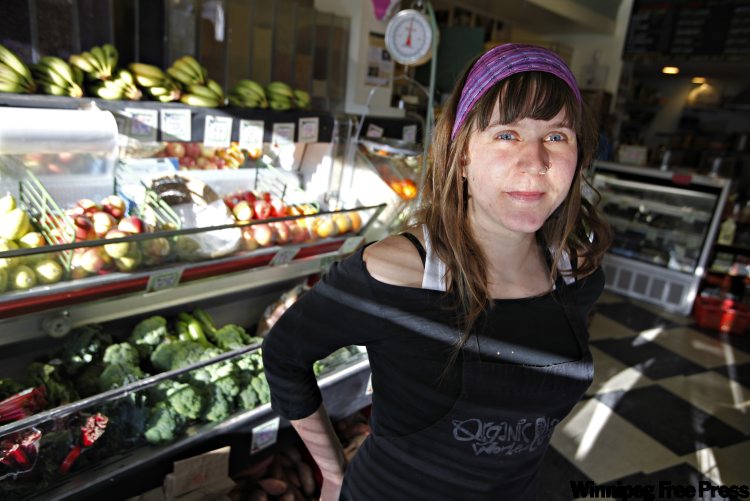Organic food producers see strength in new alliance
Marking first year of uniting province's chemical-free growers
Advertisement
Read this article for free:
or
Already have an account? Log in here »
To continue reading, please subscribe:
Monthly Digital Subscription
$1 per week for 24 weeks*
- Enjoy unlimited reading on winnipegfreepress.com
- Read the E-Edition, our digital replica newspaper
- Access News Break, our award-winning app
- Play interactive puzzles
*Billed as $4.00 plus GST every four weeks. After 24 weeks, price increases to the regular rate of $19.00 plus GST every four weeks. Offer available to new and qualified returning subscribers only. Cancel any time.
Monthly Digital Subscription
$4.75/week*
- Enjoy unlimited reading on winnipegfreepress.com
- Read the E-Edition, our digital replica newspaper
- Access News Break, our award-winning app
- Play interactive puzzles
*Billed as $19 plus GST every four weeks. Cancel any time.
To continue reading, please subscribe:
Add Free Press access to your Brandon Sun subscription for only an additional
$1 for the first 4 weeks*
*Your next subscription payment will increase by $1.00 and you will be charged $16.99 plus GST for four weeks. After four weeks, your payment will increase to $23.99 plus GST every four weeks.
Read unlimited articles for free today:
or
Already have an account? Log in here »
Hey there, time traveller!
This article was published 09/04/2010 (5664 days ago), so information in it may no longer be current.
A new organization representing the organic food business is marking its first year in operation this week, as demand for chemical-free food is growing along with the volume and diversity of production.
But the niche sector is not immune to the vagaries of the market.
Growth, scope and challenges are some of the issues producers will discuss as the Manitoba Organic Alliance holds its second annual meeting at the Headingley Community Centre on Saturday.

Organized last year with the assistance of provincial funding, MOA executive co-ordinator Deborah Unger said the idea is the group will speak on behalf of the organic producer sector on regulatory issues and the implementation of those regulations.
"Up to this point the organic producers have not been able to act as a cohesive group," she said. "That was part of the rationale for putting the organization together."
Emily Stevens, one of the founding members of the Organic Planet Worker Co-Op, a mainstay Wolseley organic food store, said she has seen a growing network of organic producers and greater access to a broader range of produce.
"In the past seven years we have had a lot more local producers contacting us," she said. "I feel like the movement is growing. There is more networking. Farmers are great at growing food, but maybe not so great at marketing themselves."
She said the network that is developing and strengthening is allowing more producers to access more retailers and vice versa, something that the new MOA would also probably serve to address.
But the organic produce community has felt the recent economic downturn.
Stevens said Organic Planet’s business had been growing steadily for a few years, but sales of the generally higher-priced produce experienced a setback last year.
"Even though more people are getting accustomed to using organic food, when push comes to shove it might not be seen as a necessity but a luxury," she said.
John Finnie, who has a diversified organic grains, oilseeds and pulse farm near Virden, agreed the recession, combined with an increase in the number of organic producers in the market, has put added pressure on all organic farmers.
But he said his CrocusView Farms operation — which includes bison production as well as about 400 hectares of organic cropland — has built up a growing private market for all his produce over the last five years and he and his family are fully committed to the sustainable organic approach.
"It took about five years to get the land certified (organic) and to be honest, it was a bit of a struggle for the first few years," he said. "But we feel we are on the verge of a breakthrough when it comes to yields and overall profitability."
In 2008 there were around 300 certified organic producers and processors in Manitoba, and nearly 40,000 hectares dedicated to organic crops.
martin.cash@freepress.mb.ca

